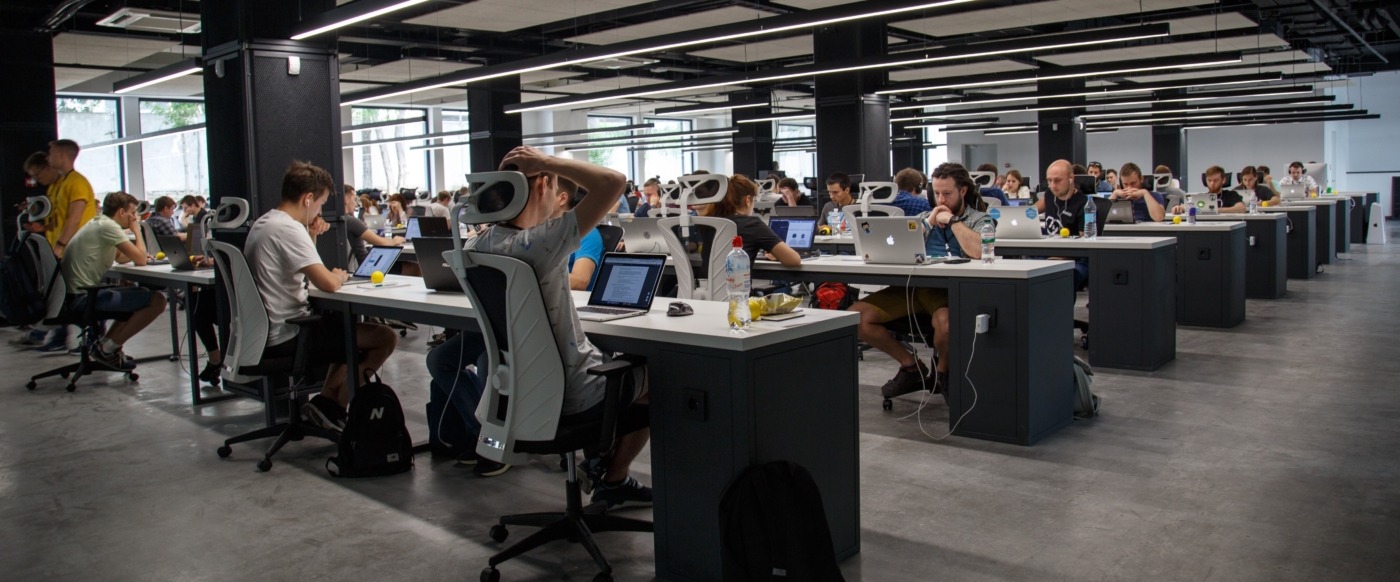Change in the way we work is long overdue
In 1987, over a decade after the two computing giants, Microsoft and Apple, were founded, Economist Robert Solow quipped “you can see the computer age everywhere but in the productivity statistics.” He was right – though IT had permeated through the Western world, there wasn’t a commensurate rise in productivity.
Why? Although computers were everywhere by the late 1980s, they were mostly being used as expensive typewriters and calculators. The real gains from technology come not when existing ways of working are improved, but when new ways of working are made possible. Solow’s famous paradox was partially resolved in the 1990s and 2000s, when the ‘dot com’ boom saw new products and ways of working enabled by IT. In the same way, although smart phones and laptops have become commonplace in the modern workplace, most companies aren’t actually leveraging this technology. We’re working in the same way as we always have, despite no longer actually needing to.
But now Twitter has announced that its employees can continue to work from home permanently, if they want to. If mirrored by other companies, this could be the first step towards a new tech revolution, with smart phones, laptops, tablets, and broadband allowing how and where we work to be revolutionised. The virus has forced employers to abandon their traditional ‘office’ model – now it’s crucial that we don’t move back.
The real gains from technology come not when existing ways of working are improved, but when new ways of working are made possible
A world in which those with caring responsibilities aren’t disadvantaged because they can’t work between 4-6pm on a weekday, or those with disabilities because they can’t take a complicated journey on public transport every day is not just more equitable, it’s also more productive. The TUC found that the average Brit spends roughly an hour commuting every day – this is dead time. Likewise, companies can now see that they don’t need all their employees in one building every day. This might create opportunities outside of London and other large cities, making strides towards addressing regional inequalities.
Now, that’s not to say we should never go back to the office again. For many jobs, it’s clearly not practical to work from home all the time. A change in default, though, is certainly no bad thing. A journey to the office once a week to see your team and your manager is much more manageable than the grind of a daily commute. A more dispersed workforce that meets up less frequently would reduce the pressure on housing in large urban centres, as well as increasing opportunities in ‘left-behind’ regions.
It’s now absolutely vital that, when we start to rebuild the workplace after this crisis, we don’t just build it the way it has always been
On the other hand, many people value the companionship and interaction of working alongside others they know. Large companies, therefore, should move towards a ‘hub and spoke’ model of working. Firms should maintain satellite offices, perhaps consisting of only a floor or a few rooms, in suburbs or towns nearer to where their employees live. This would enable companionship and space for employees without requiring everyone to be together at the same time. For smaller companies, co-working spaces are a good solution, allowing employees to work in the same location when they need to, and at home when they don’t.
Like all large changes, this won’t be without its challenges. Managers, who have used presence as a proxy for working, will have to adapt their techniques to match this new world. The age of the primary metric for an office worker’s pay being the time they were at work has most likely passed. For some, this may mean spending less time on the job – there’s no need to spend 3 hours every day pretending to work just to get paid. For others, though, it’ll be easy to slip into working longer and longer hours. The lack of a hard boundary between work and home could increase productivity and flexibility, but it could also easily lead to an exploitative and unsustainable work environment. Companies will need to work harder to care for the mental and physical health of their employees.
This virus has disrupted everything. The way we work is just one thing that will have to be radically rethought. It’s now absolutely vital that, when we start to rebuild the workplace after this crisis, we don’t just build it the way it has always been. Companies need to adapt to better look after their employees, and to help them to be more productive. Technology allows us to create a more flexible, open-minded attitude towards working arrangements and coronavirus has forced us to do it. It’s time we recognise that it’s also desirable.

Comments